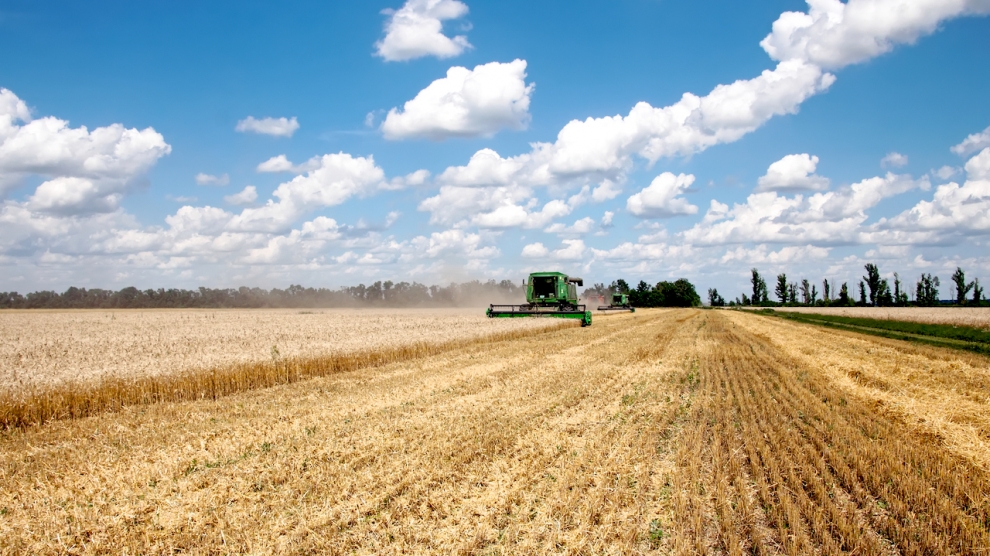State enterprises hold approximately 0.5 million ha of agricultural land, which may be of potential interest to investors.
The agricultural market is currently one of the most dynamic and profitable in Ukraine, providing 12 per cent of the national GDP. The country is also one of the leading producers and exporters of agricultural products in the world. Considering the latest developments in the agricultural sector (including legal reforms) it seems to be the right time for foreign investors to enter the agro market.
Currently, most of the agro producers lease their agricultural land rather than own it (a moratorium on the sale-purchase of agricultural land has existed in Ukraine from 2002). Although long-term lease agreements are allowed (up to 50 years), leasehold does not provide a sufficient comfort level, in the view of many foreign investors. The draft law of Ukraine “On Agricultural Land Circulation” is about to be passed (expected at the end of May 2017) and it will allow the sale-purchase of agricultural land, by Ukrainian individual, from 2018 and by Ukrainian companies (including owned by foreign shareholders) from 2020.
When one plans to purchase or establish an agricultural enterprise in Ukraine, it is necessary to consider not only the target company itself but also the infrastructure that is required for storage, processing and transportation, i.e. connecting links to the railway, storage capacities, silos and or grain terminals etc. The last few years have demonstrated that there are some problems with railway transportation because of the lack, and condition, of hoppers. Therefore, it is planned to renew the hoppers and to purchase new ones so as to ensure the prompt transportation of agricultural products all over Ukraine. Considering the above, it is also recommended to make a preliminary estimation of the costs involved in the probable construction or modernisation of a silo or grain terminal.
When acquiring an agricultural business, you should consider the risks that are common in this sector: risks related to land lease (premature termination of land lease agreements / acknowledgement of land lease agreements as invalid) and assets (risks related to the history of assets acquisition, namely acquisition from the state). Due diligence should be paid to tax risks, in particular those related to VAT accrual and payment, including VAT credit. Considering this, it is strongly recommended that potential investors hire local advisors to carry out the due diligence, covering land /other assets, as well as taxes, in order to avoid the risks and to stay on the safe side.
The deal shall be structured based upon the results of the due diligence and subject to considerations of the BEPS regulations, in as far as Ukraine joined an Inclusive Framework for BEPS implementation, starting from 1 January 2017.
When structuring a deal, you should be careful to pay attention to compliance with antitrust requirements. In general, the purchase of 25 per cent or more in a Ukrainian company is considered as a concentration which shall require a permit from the Antimonopoly Committee of Ukraine (AMCU), if the financial thresholds are exceeded. In 2016, the respective thresholds were increased but are still relatively low. The permit is granted by the AMCU within 45 days (25 days within the simplified procedure) from the date when filing is completed. The establishment of a company in Ukraine may also require an AMCU permit if the company is being established jointly with either Ukrainian or foreign partners.
Resolution of disputes should also be one of the key considerations. When structuring a deal, it is always better to arrange for an arbitration clause to be included, so as to be able to submit any disputes that crop up to either one of international arbitrations or the International Commercial Arbitration Court at the Ukrainian Chamber of Commerce and Industry (ICAC). This is definitely more effective than seeking dispute resolution in court — over 75 per cent of cases are considered by ICAC within three months.
One should also note that agricultural enterprises are subject to the general taxation system; no tax benefits are applied (a special VAT-regime for agricultural companies was cancelled from 2017 onwards). However, some agricultural enterprises are entitled to state subsidies, but actually, this scheme is not yet working. Please note that the general income tax in Ukraine is 18 per cent and VAT is 20 per cent (0 per cent for export operations).
Currently, there are certain currency limitations in Ukraine: namely, companies must sell 50 per cent of their currency earnings. It is prohibited to transfer currency out of Ukraine in order to pay dividends to foreign shareholders etc. The good news is the National Bank of Ukraine is making progress on the elimination of such temporary limitations.
Ukraine is working out the issues concerning the privatisation of enterprises in different sectors, including agriculture. Currently, state enterprises hold approximately 0.5 million ha of agricultural land, which may be of potential interest to investors. The existing legal procedures are not that favourable, however, and the State Property Fund of Ukraine, along with the other state authorities, is developing new laws to make privatisation transparent, easy and beneficial for both the state and the investor. A new law on privatisation is to be adopted by the end of August 2017.
Summarising the above, it should be noted that we still have some problems, including legal gaps, ambiguity and overregulation. However, Ukraine is undergoing a period of active legal reforms to improve this situation. This is demonstrated by the envisioned cancellation of the moratorium on sale-purchase of agricultural land, the elimination of currency restrictions and the improvement of corporate governance etc. Moreover, in recent years Ukraine has also improved its position in the Doing Business ranking and is moving towards strengthening the national economy and attracting foreign investments.
_______________
The views expressed in this opinion editorial are the author’s own and do not necessarily reflect Emerging Europe’s editorial policy.

